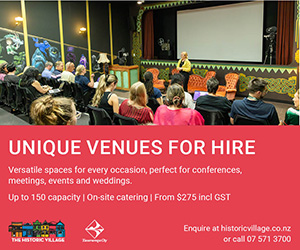Engaging an experienced lawyer specialising in leasing will ensure you are properly informed and protected when you enter a new lease. Jason Bywater-Lutman from Cooney Lees Morgan offers these 10 tips for tenants looking to enter into a new lease:
1. Seek advice
To make sure that you are properly protected you need to seek legal advice about your lease as early as possible.
Once you have signed an agreement to lease prepared by an agent you will ordinarily be fully committed to leasing the premises.
If you have seen your solicitor before you have started looking for a property to lease then they can provide you with some clauses to allow them the opportunity to review both the legal and commercial aspects of the transaction after you have signed the agreement to lease.
2. Understand the total cost of your lease
In New Zealand most leases are specified to be “net” leases.
When you sign a net lease you will be paying your rent and agreed outgoings that are incurred in operating your premises.
Outgoings can add to your costs of renting considerably.
Outgoings will ordinarily include the landlord’s building and loss of rent insurance, rates, body corporate fees, management fees any service fees for common property such as lifts and toilets.
It is important that you have a discussion with the letting agent as to what the costs of outgoings are budgeted to be during your lease.
3. Rent Reviews
All leases will have rent review clauses. There are two common types – market rent reviews and Consumer Price Index reviews.
Most leases will include a combination of both.
Market rent reviews can be an important adjustment mechanism to reset the lease to the rate that a willing tenant would be prepared to pay for premises of that type.
They allow the rent to go up and down to meet the market.
Consumer Price Index (CPI) reviews are a much blunter tool.
They adjust the rental with reference to changes in the consumer price index (which tracks inflation).
You can accordingly expect that the rent will go up during a CPI review at a rate of 1-2 percent per annum (compounding).
The timing of rent reviews can be important as they normally have what is known as a ‘ratchet’ provision. A ratchet clause is designed prevent your rent dropping below a designated level.
It is common for market rentals to have a ratchet that prevents the rent from being less than it was at the commencement of the current lease term.
This can make it important to have a market rent review on or before the renewal date for your lease.
CPI rent reviews normally have a “hard ratchet,” which means that the rent won’t go down even if the CPI does.
4. Agree the building use
Most leases specify what you may use the premises for.
Landlords prefer to be as specific as possible as to what their premises can be used for.
This allows them to control the type of tenant they will have and ensure that the building used as they intended.
It is in your interest to specify the use of the property in as general terms as possible.
This allows the premises to be used in a flexible manner and makes it easier to assign the lease should your plans change.
Sometimes when you are taking a lease of only part of a premises it may be in your interests to discuss with the landlord restrictions on the use of the balance of the premises. For example there is a real benefit in being the only café in a large commercial property.
5. Guarantees
Unless you are signing a lease in your own name you can expect that you will be obliged to provide a guarantee of the tenant’s obligations under the lease.
These obligations will normally continue after you have assigned the lease.
Should a subsequent tenant fail to perform their obligations under the lease you may be called upon to satisfy the rental arrears under your guarantee.
Many tenants now prefer to provide a bank guarantee.
This can be a good way of limiting your exposure if you think there is a possibility that you may assign the lease during the term.
However there is a direct financial cost to you in arranging a bank guarantee and you will be required to provide securities to the bank to ensure it is not left out of pocket.
6. Seismic rating
You should ask the landlord about the seismic rating of the property.
The seismic rating of the property has a direct effect on the safety of your employees and customers in the event of an earthquake.
A low seismic rating can also have an dramatic effect on the insurance premiums that you will pay for from your outgoings.
If the seismic rating is low you will need to discuss with the landlord what, if any, strengthening work will occur during your lease and agree how you will be compensated for this disruption.
7. Maintenance plans
If you are leasing an attractive building and you want it to stay that way you need to understand what the maintenance will be undertaken during your lease.
You need to know when the works that will be undertaken, how much those works will cost you and how these will disrupt you.
8. Internal fit out
Setting up your internal fit out can be both time consuming and expensive.
You need to understand what existing fit out will remain at the commencement of your lease and carefully plan and cost the fitting out your premises.
Consider these costs when deciding how long your lease term will be as often your fit out can’t be reused.
Many landlords are prepared to offer a rent free period to allow fit out to occur or to make a contribution to fit out.
Landlords may require the fit out to pass into their ownership at the end of the lease.
This can benefit both parties as the Landlord has an asset that they can keep using and you are not required to meet the costs of removing the fit out.
9. Redecoration
}There is normally a redecoration provision in any lease.
You need to understand what your obligations in relation to this are as they can vary dramatically from a “paint as and when required” to an obligation to ensure that your fit out is modern and up to date.
While a landlord at an industrial site may be relatively unconcerned as to the ongoing redecoration obligations owners of commercial retail premises may be much more prescriptive.
Redecoration obligations can benefit you as well if you have confidence that the other tenants in the same property will be obliged to keep their tenancies to a good standard
10. Reinstatement
Please be aware that unless you agree otherwise you are normally obliged to leave the premises as you found them (except for reasonable wear and tear).
The obligation to remove your fit out can be expensive and it means that rather than trading down to the last days of your lease add costs to your lease you may find yourself disposing of the fit out that you installed.


















